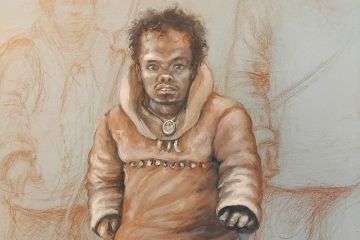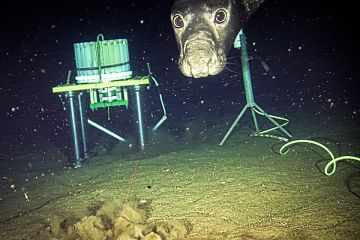New COVID-19 test measures virus proteins
- Dorothy Eggenberger
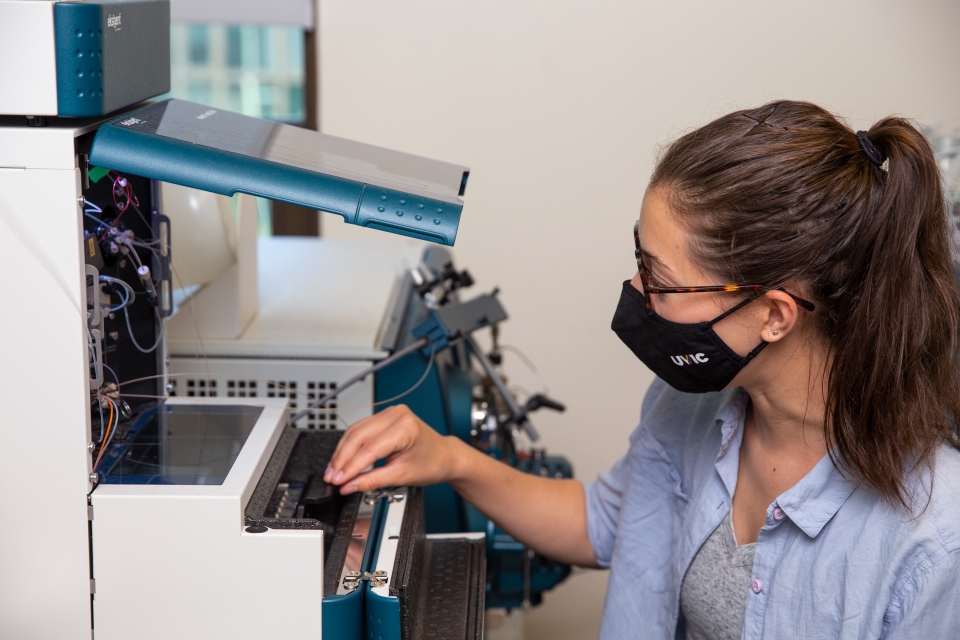
Less than 0.1 milliliters of blood is all that UVic researchers need, in an exciting commercial-academic partnership that has developed a “gold standard” test for COVID-19 using cutting-edge technology that could revolutionize clinical laboratory testing and monitoring of disease.
UVic microbiologist Caroline Cameron and SISCAPA Assay Technologies Inc. have developed a new diagnostic test that detects and measures the levels of SARS-CoV-2—the virus that causes COVID-19—with unprecedented accuracy.
By measuring a selected virus protein in blood we go beyond simply determining a positive or negative diagnosis—we measure virus levels thus are able to monitor COVID-19 progression during infection and treatment. Such measurements offer the possibility of predicting disease severity and a better understanding of ‘long COVID’.
—Terry Pearson, SISCAPA director, co-founder, and UVic professor emeritus
“Current diagnostic tests—PCR and antigen detection tests—suffer from their inability to reliably detect virus in blood and do not allow accurate measurement of virus load. Our new test solves these problems.”
SISCAPA Assay Technologies Inc. developed the groundbreaking technology called Stable Isotope Standards and Capture by Anti-Peptide Antibodies (SISCAPA) which detects and quantifies protein biomarkers. Together with Dr. Cameron, SISCAPA developed a critical component of the new test that measures SARS-CoV-2 virus nucleoprotein. The nucleoprotein undergoes fewer mutations than the spike proteins on the virus surface, thus the test can detect many new virus variants, unlike other tests that must be modified for each problematic variant that arises in the population.
Although the team is currently working with blood samples, the test is also capable of measuring viral proteins in nasal swabs, and saliva—a unique feature which enables further research into the manifestations of SARS-CoV-2 infection.
The new test can measure multiple biomarkers in the same sample thus allowing measurement of a panel of inflammation and immune response proteins—features unique to SISCAPA technology. The result is a test that can detect active virus production and how well (or poorly) the human body responds to control the infection.
“SISCAPA diagnostic tests can measure any suitable set of biomarkers, tailored to match different infectious diseases,” says Cameron.
“SISCAPA technology can also be used to diagnose and monitor non-infectious diseases such as cancer and cardiovascular disease—the tech is wide-ranging in its applicability,” adds Pearson.
Current work is underway to develop SISCAPA assays for Influenza A, Influenza B and Respiratory Syncytial Virus that multiplexed with the COVID-19 test will allow screening of populations for respiratory viruses that show seasonal emergence.
NSERC grant funds development of critical antibody reagent
A SISCAPA test employs specialized antibodies that enrich small pieces of the SARS-Co-V-2 nucleoprotein released by digestion of a patient’s blood into small peptides. At the beginning of the pandemic, Cameron and Pearson applied for an NSERC COVID-19 Alliance Grant to fund the development of one of the key antibody reagents. The application and research were successful, allowing SISCAPA to develop a working test now used in labs in North America and Europe.
SISCAPA devised the test at UVic and then translated it to research partners in England and several countries in continental Europe. The Waters Corporation—a prominent international equipment manufacturer—was a key contributor to a European consortium of laboratories involved in COVID-19 research, donating mass spectrometers and analytical expertise. Excited with the positive results obtained using the UVic-SISCAPA assay, Waters introduced the SARS-CoV-2 LC-MS Kit to sell worldwide.
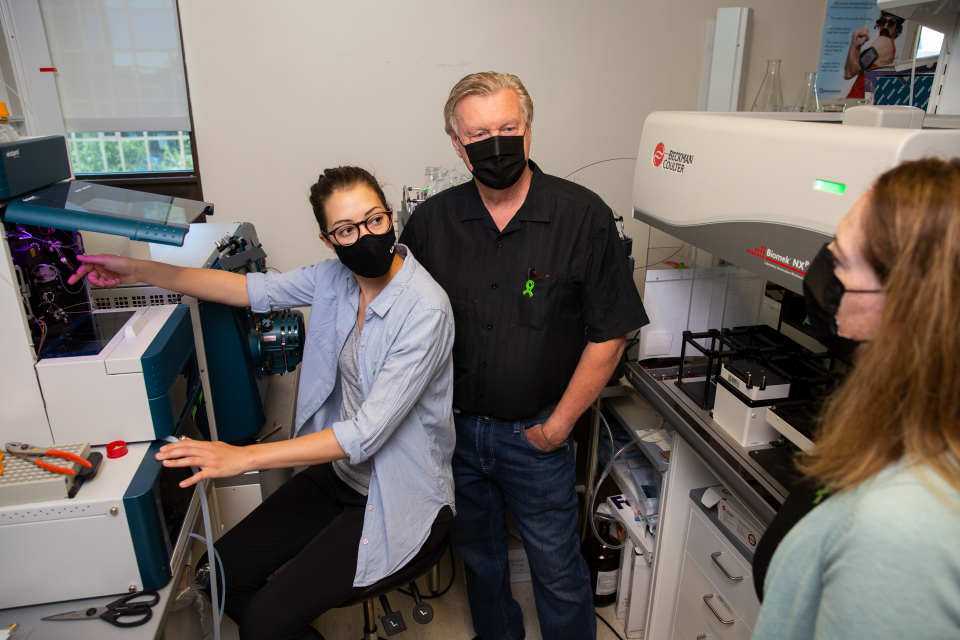
SISCAPA Assay Technologies operates on the UVic campus and primarily employs UVic alumni and co-op students, keeping the local economy buoyant while addressing some of the world’s most challenging problems around health.
“The academic interface available to us at UVic—especially the expertise of Caroline’s lab—enables us to do great things in the field of infectious diseases,” says Pearson, “And our UVic graduate employees, are first class.”
Learn more about Cameron’s research on syphilis, the world’s first global disease
Read SISCAPA Assay Technology’s recent paper on the COVID-19 assay
Photos
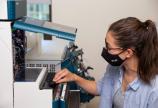
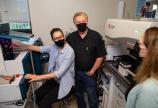
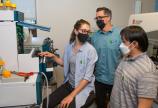
In this story
Keywords: research, alumni, co-op, health, industry partnerships, microscope, technology, biochemistry, microbiology, community, international, administrative, student life
People: Caroline Cameron, Terry Pearson, Angela Mitchell, Andrew Hettle, Richard Yip
Publication: The Ring

